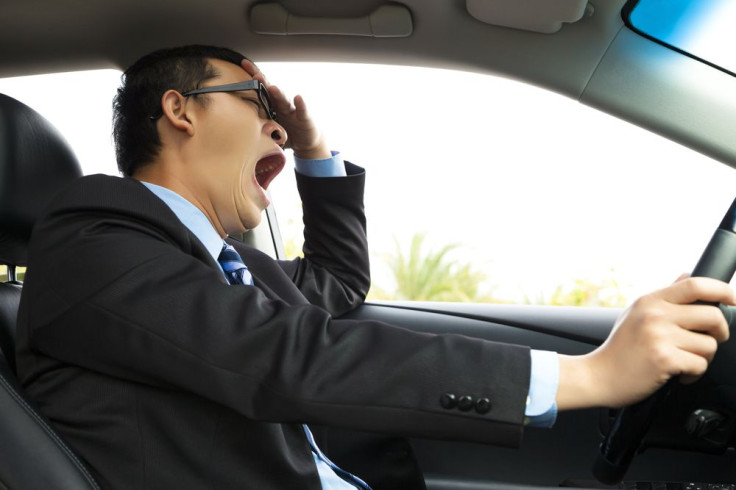Driving Skills Depend On If You're A Morning Or Night Person

If you’re a night owl, researchers find you’re not as good of a driver as morning people. A new study, published in the journal of Accident Analysis and Prevention, researchers from the Neuroergonomía research group of the University of Granada Mind, Brain and Behavior Center, reveals being a morning person or night owl drastically affects driving performance.
Granada researchers analyzed the circadian, biological rhythms in a sample of 29 University of Granada students who had extremely defined chronotypes, which meant if they were a night owl, they did most of their functioning in the night. They found night owls drove poorly in the morning.
Sleep Medicine has evolved over the past 25 years based on the convergence of major developments in the science of sleep and circadian rhythms (chronobiology). Each individual, regardless of their age, has a specific chronotype, which is thought to be designed by our DNA and not by environmental factors. Chronotypes are an internal timer, which determines if you are a morning person or a night owl.
Our internal clocks can be traced down to a neurological level, right inside our hypothalamus. Each individual has a suprachiasmatic nucleus or SCN, which is a small region in the brain that interacts with the optic nerve and acts as a “master clock” for mammals and controls circadian rhythms. It is stimulated by the light transmitted through the eye, which travels along the optic nerve, ultimately regulating neural and hormonal activity based on our personal circadian rhythms.
Using a questionnaire, researchers found those who were morning people and drove at 8:00am and 8:00pm did it more optimally than night owl, evening types based on their driving performance.
"Certain professions involve performing tasks that require good attention vigilance — airline pilots, air traffic controllers, supervisors in nuclear power stations, surgeons, or lorry drivers," said Angel Correa, the study’s lead author and professor at the Univesity of Granada.
According to the National Sleep Foundation’s 2013 International Bedroom Poll, the amount of sleep the average person logs each night has been steadily decreasing over the past century, with the average American getting six-and-a-half hours of sleep a night during a five-day workweek.
"A particular time of day can be a good or a bad time to perform these tasks as a function of the chronotype of the individual involved, although there are times that are bad for everyone, like siesta time or in the early hours between 3.00 and 5.00," Correa said.
Drivers should perform their routes depending on their personal chronotypes. Granada researchers warn drivers not to commit to more than an 18-hour straight wakefulness and then drive. It equivocates to the same level of risk as driving with the legal maximum level of blood alcohol in their blood, which shows just how serious driving performance declines.
Source: Correa A, Molina E, Sanabria D. Effects of chronotype and time of day on the vigilance decrement during simulated driving. Accident Analysis & Prevention. 2014.
Published by Medicaldaily.com



























